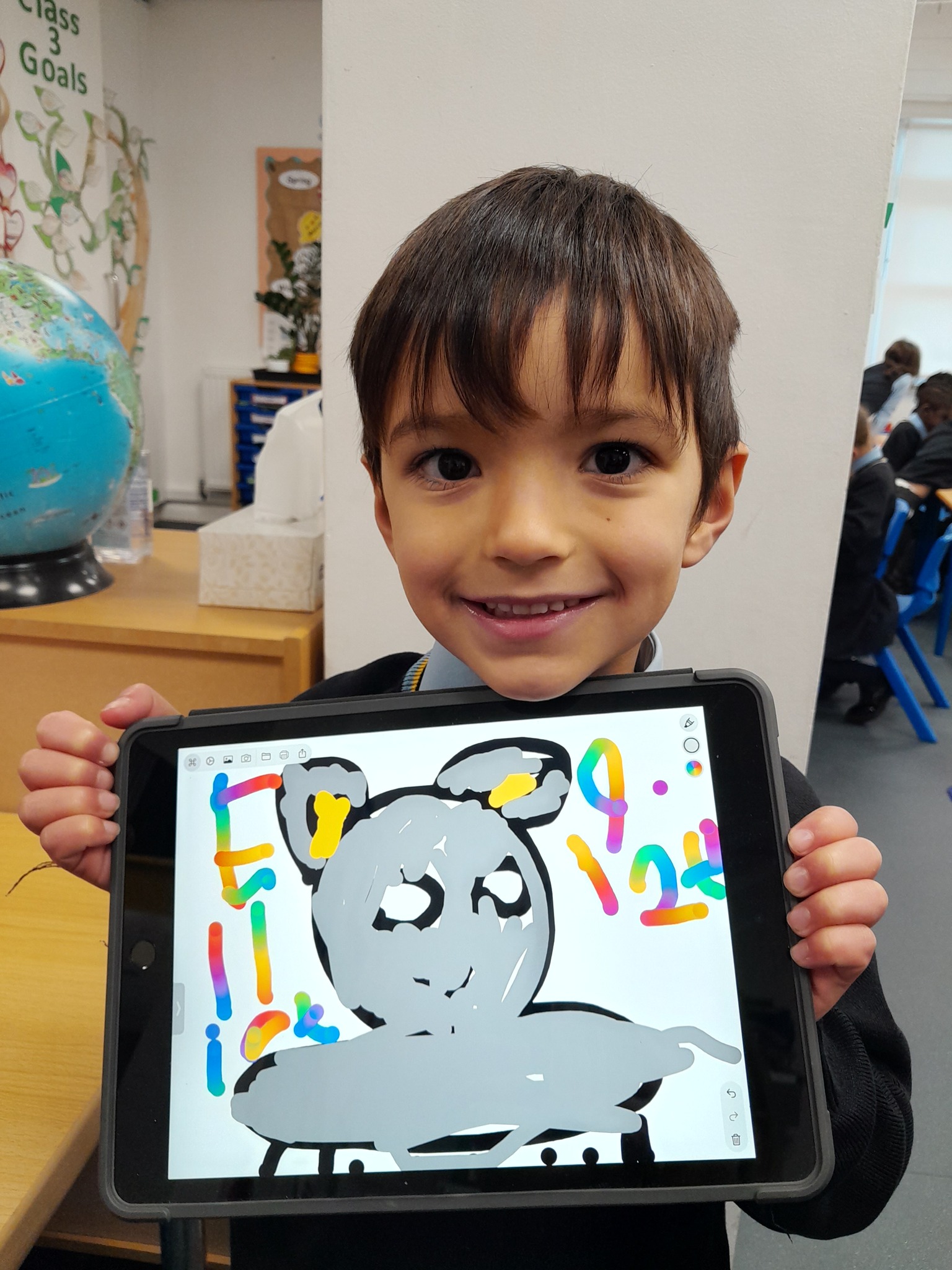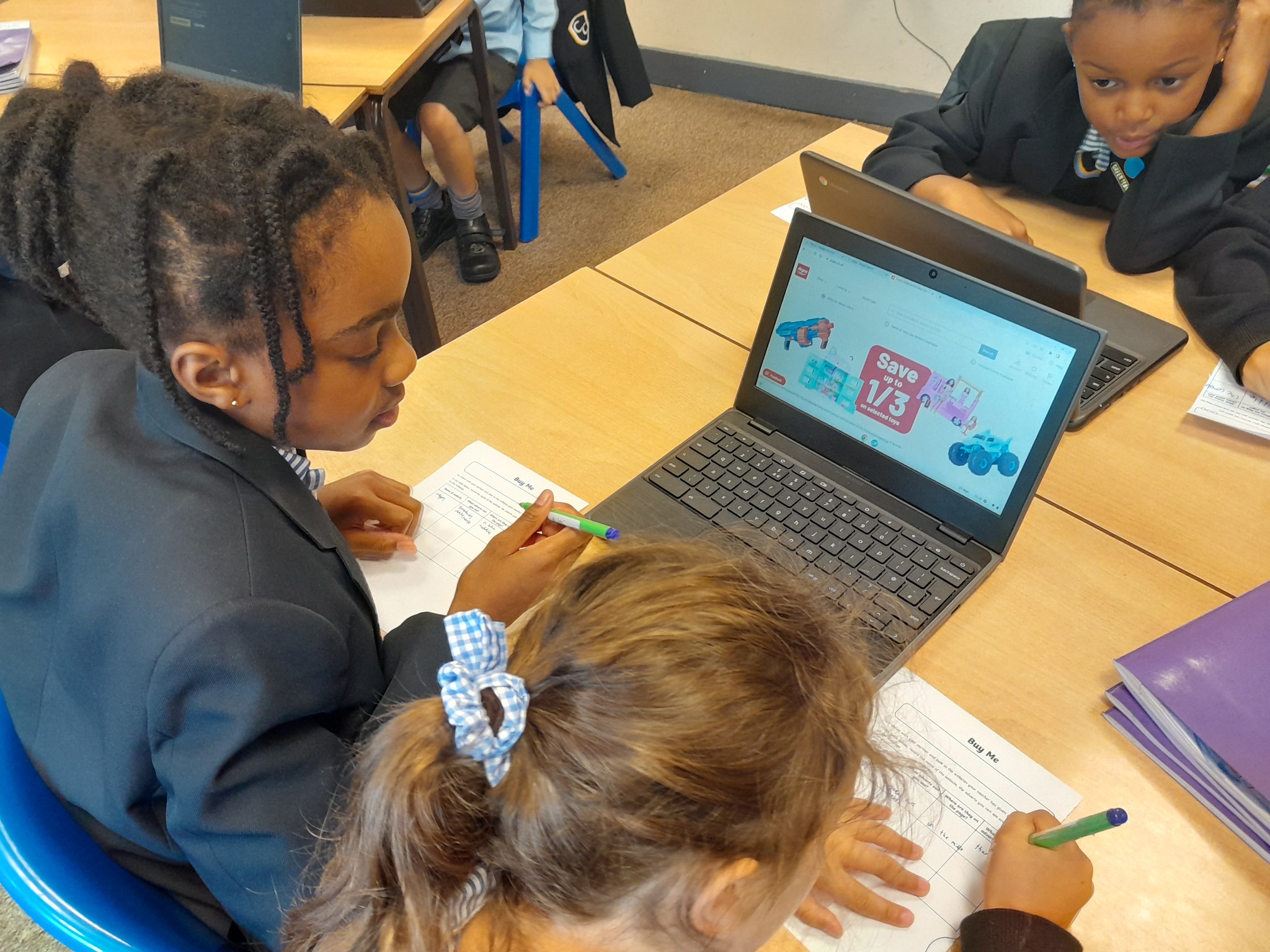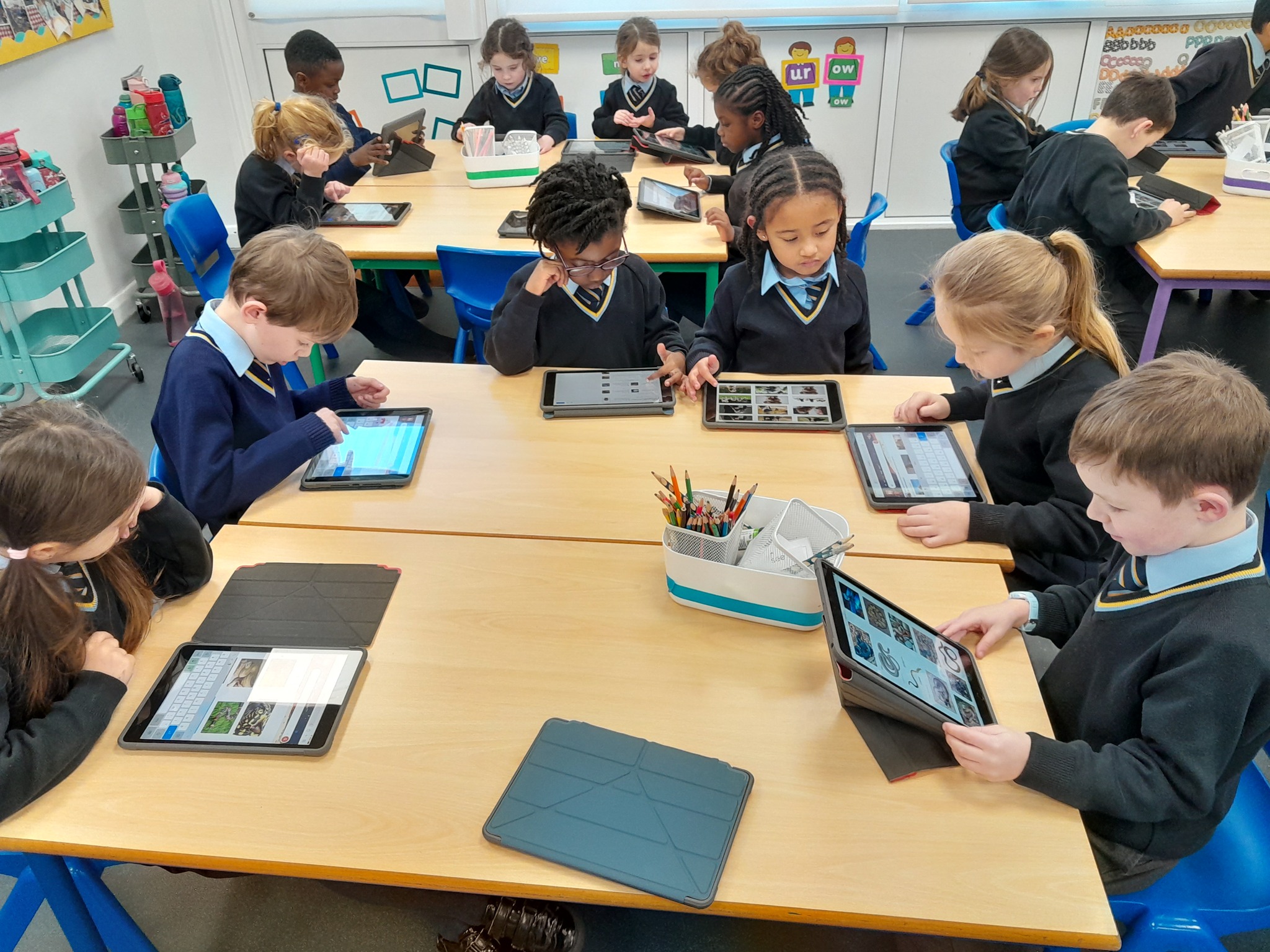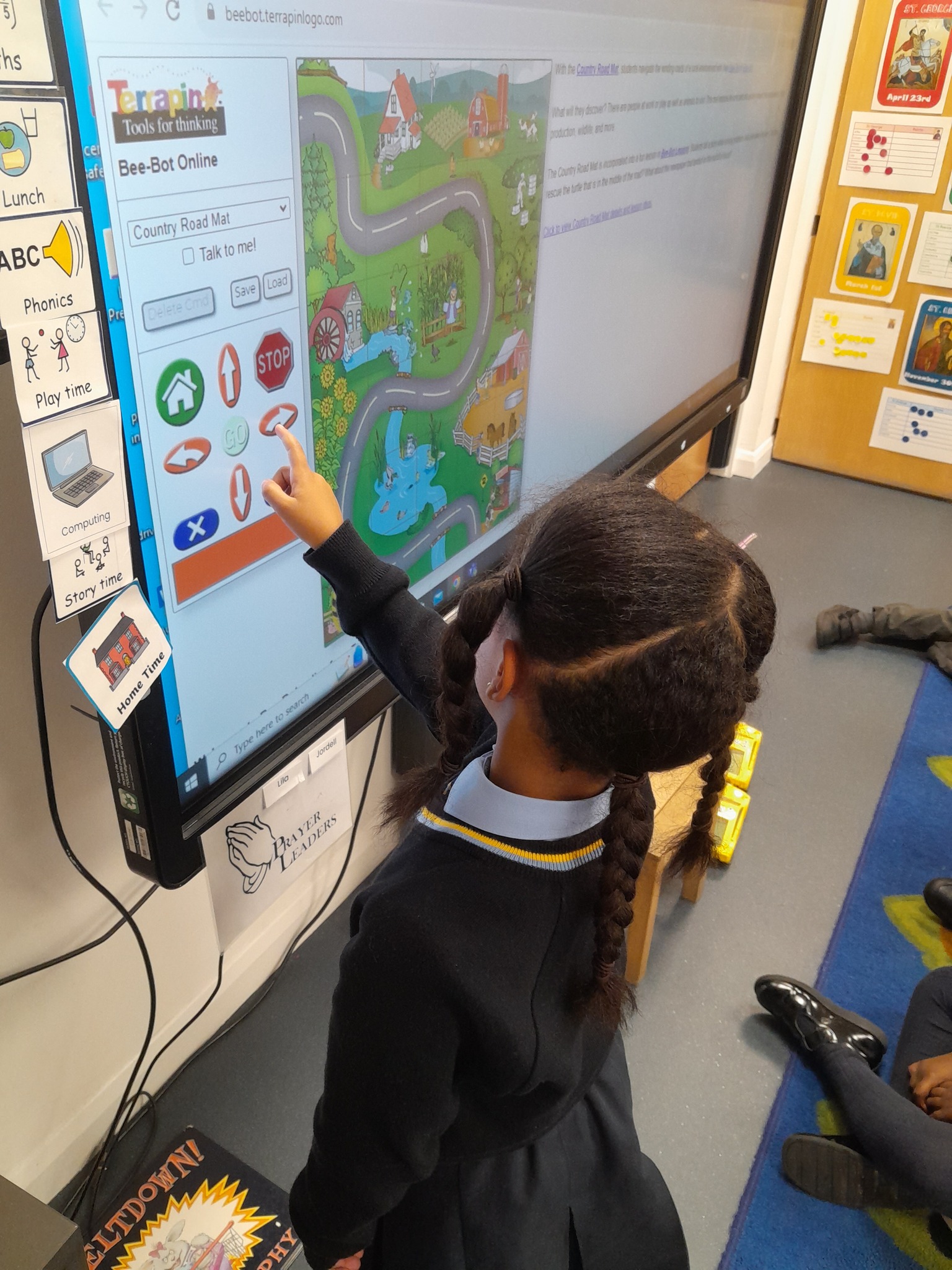Computing Lead
Ms Almaz Thomas - Computing Lead
At Corpus Christi Primary School, we provide a high quality and engaging computing curriculum that nurtures a passion for technology whilst equipping our pupils with the essential skills and knowledge they need to thrive in an ever changing digital world.
We teach the three key strands of computing in adherence to the National Curriculum—Computer Science, Information Technology, and Digital Literacy—using the National Centre for Computing Education (NCCE) Spiral Curriculum.
This approach is adapted to best suit the diverse needs of our pupils, ensuring that our curriculum is inclusive and accessible to all learners. Throughout our teaching, we explicitly focus on the development of computational thinking, which underpins our pupils' approach to learning and encourages them to take ownership of their learning journey.
Our curriculum aims to build confidence, resilience, and problem-solving skills, ensuring our pupils are well-prepared for future learning and digital challenges.
Intent
The intent of our computing curriculum is to provide all pupils with a strong foundation in the three core strands of computing. Through the application and adaptation of the NCCE Spiral Curriculum, we ensure that our teaching progresses in a structured way, allowing pupils to build on prior learning and develop their skills and knowledge gradually throughout their time with us.
We aim to:
- Equip students with a deep understanding of the three strands: Computer Science, Information Technology, and Digital Literacy.
- Embed computational thinking as a key component of our curriculum, ensuring it becomes an integral part of pupils’ thinking and problem-solving approaches.
- Foster creativity and curiosity through engaging, hands-on learning experiences that challenges our pupils to explore and experiment with technology.
- Ensure inclusivity by adapting our curriculum to meet the needs of all learners, supporting their individual progress and ensuring accessibility to technology for everyone.
- Promote digital resilience and responsibility, empowering pupils to navigate and use technology safely and effectively.
Implementation
Our computing curriculum is implemented in a way that allows our pupils to make gradual progress across the three strands of computing and ensure the consolidation of learning through the repetition granted by our spiral curriculum. The curriculum is adapted to meet the specific needs of our learners, ensuring it is accessible and engaging for all. The key components of our implementation include:
- Computer Science:
- Pupils learn the fundamentals of programming, algorithms and computer systems. This is introduced through age-appropriate activities, beginning with block-based coding (using platforms like Scratch) and progressing to text-based coding as pupils advance.
- Pupils explore the logic of computer systems, problem-solving through coding and understanding how hardware and software interact.
- Information Technology:
- Pupils develop skills in using a variety of software tools and applications for creative and productive purposes. This includes word processing, data handling and multimedia creation (such as videos, graphics, and presentations).
- Pupils are encouraged to use technology to research, collaborate and present information confidently.
- Digital Literacy:
- We explicitly teach how to stay safe and responsible in the digital world, focusing on issues such as online safety, digital footprints and responsible use of social media and online resources.
- We provide children with the opportunity to develop their ability to evaluate digital content critically and use technology in an ethical manner.
Impact
The impact of our computing curriculum is measured through both the progress pupils make in their technical skills and their personal development as learners.
By the end of their time at Corpus Christi Primary School, we aim for all pupils to:
- Have a strong understanding of the three strands of computing, with the ability to apply their knowledge across different contexts.
- Demonstrate computational thinking as part of their problem-solving approach to tasks in computing and beyond.
- Be confident users of technology - using it effectively for communication, creativity and learning.
- Show resilience and confidence in tackling technical challenges with the ability to adapt and persevere when faced with difficulties.
- Understand the importance of online safety and be equipped to navigate the digital world in a responsible, ethical and safe manner.
We celebrate both academic achievement and personal growth, fostering a love for computing that extends beyond the classroom and into future learning opportunities.
Curriculum Enrichment & Pupil Leadership
At Corpus Christi, we offer a variety of enrichment activities and pupil leadership roles to engage students and empower them to take ownership of their learning. 
Children in the Upper Juniors have the opportunity to become Digital Leaders, where they take on key responsibilities such as overseeing the delivery and care of ICT equipment, creating posters for upcoming events, leading assemblies and running workshops to support younger year groups with their computing lessons.
In addition to Digital Leaders, we offer a range of enrichment opportunities designed to deepen pupil understanding of computing and digital citizenship, while fostering creativity and responsibility. These include:
- Safer Internet Day: We provide a series of workshops, assemblies and activities aimed at educating pupils about online safety, digital responsibility, and how to navigate the internet safely curated by our Digi Leaders.
- Corpus Christi Podcast: An exciting initiative where pupils have the chance to engage with school-based content, helping to enhance their oracy, communication and presentation skills.
- School YouTube Channel: Designed and managed by our Digital Leaders, the school’s YouTube channel serves as a platform for students to share educational content, promote school events and showcase their work/assemblies.
- Online Safety Workshops: Expert-led workshops provided by external partners, ensuring that our pupils gain high-quality, up-to-date knowledge about staying safe online, delivered by professionals in the field.
- STEM Events: We collaborate with Bishop Thomas Grant School to take part in STEM-focused events.
Trips to Museums and Galleries: We organise trips to places such as the Tate Modern and other relevant museums and galleries, offering pupils the opportunity to learn about the impact of the internet, digital art, and technology from a broader cultural and societal perspective.
.jpg)